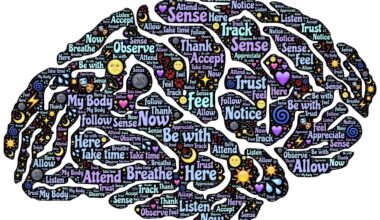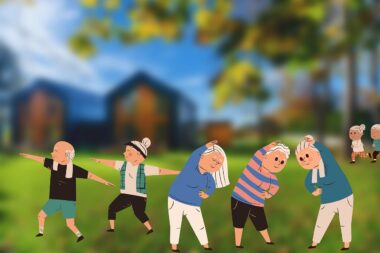The Role of Social Support in Overcoming Senior Fitness Challenges
Senior fitness challenges often stem from various physical and psychological barriers that older adults face. As they age, many individuals encounter limitations such as balance issues, decreased endurance, and chronic pain, which can significantly impact their desire and ability to remain active. Due to these difficulties, seniors may feel isolated and discouraged, thus further exacerbating their fitness struggles. The importance of social support in the lives of seniors cannot be overstated. Research consistently shows that having a strong network of family and friends plays a vital role in enhancing both physical and mental well-being. When seniors engage with their loved ones during exercise, they become more motivated to stay active. They often find comfort in companionship and encouragement, which can propel them past their physical challenges. Joining group activities, senior fitness classes, or outdoor walking clubs can foster a sense of community, boosting morale and confidence. Additionally, sharing fitness goals and achievements with others can help seniors maintain their passion and determination for a healthier lifestyle. This collective effort is crucial to overcoming fitness obstacles as they navigate their golden years.
Understanding Senior Fitness Challenges
Many senior fitness challenges arise not only from physical limitations but also from mental and emotional barriers. For older adults, the thought of engaging in exercise can be overwhelming. They may fear injury or feel uncertain about their capabilities, resulting in a lack of motivation to participate in physical activities. Furthermore, sentiments like loneliness and isolation can create emotional barriers, preventing seniors from joining fitness classes or social groups. It’s essential to understand that these challenges are not insurmountable. With the right approach, seniors can find ways to overcome these obstacles. Encouragement from peers and family members is one way to help seniors build confidence in their abilities. Engaging in conversations about shared experiences can also be beneficial, allowing seniors to relieve anxieties about fitness. Moreover, offering assistance in finding appropriate fitness activities can be a valuable support mechanism. Exercise should not be a source of stress; instead, it should bring joy and satisfaction. By addressing both physical and emotional challenges through social connections, seniors can embrace a healthier lifestyle that prioritizes fitness and well-being.
One significant aspect of social support structures for seniors involves community engagement. When older adults participate in community programs, they are more likely to form friendships and cultivate a sense of purpose in their lives. Such initiatives encourage group activities, initiating social interactions that can lead to long-lasting relationships. For instance, many community centers offer senior-specific fitness classes, which promote group participation and interaction. These classes often encompass various activities like yoga, swimming, or aerobics tailored to accommodate seniors and their unique capabilities. As participants foster new friendships, they can motivate each other, share successes, and shoulder their fitness journeys collectively. This camaraderie is instrumental in keeping seniors committed to their physical routines. Moreover, having a social support network enables seniors to celebrate their achievements, which is vital in maintaining motivation. When success is shared among peers, it creates a more gratifying experience and solidifies their commitment to fitness goals. This sense of belonging, cultivated through community engagement, empowers seniors in overcoming personal fitness challenges and ultimately leads to healthier lifestyles.
The Importance of Group Activities
Group activities can significantly enhance the senior fitness experience by providing motivation and accountability. When seniors collaborate with others during physical activities, they often feel a sense of belonging that can help combat feelings of isolation. Participating in group exercises, such as dance classes or hiking excursions, enables them to connect with like-minded individuals who share their interests. This collective spirit of camaraderie and encouragement can lead to improved motivation and adherence to fitness regimens. Additionally, seniors may enjoy the shared laughter and conversations that come with group interactions, making fitness more enjoyable. With ample opportunities for skill development driven by peer collaboration, participants frequently experience an increase in overall satisfaction regarding their progress. Not only does this social component enhance motivation, but it may also lead to enhanced mental health benefits. Engaging in regular group activities not only reduces feelings of loneliness and depression, but it also encourages seniors to adopt a more positive outlook on their fitness journeys. Together, they can support and uplift each other, making every exercise session a rewarding experience.
Another crucial aspect of social support in senior fitness is the role of family and close friends. These relationships can significantly impact older adults’ exercise habits and overall well-being. Family members and friends often encourage seniors to stay active by participating in physical activities together. Simple actions such as taking walks, attending fitness classes, or gardening can foster a supportive environment where older adults feel motivated. These interactions not only promote fitness but also strengthen familial bonds and friendships. Additionally, family support can help in ensuring that seniors are prioritizing their health, further reinforcing a commitment to fitness. Open communication with family members about fitness goals is essential. When seniors express their desires and ambitions, family members can provide encouragement tailored to their needs. It’s important for families to advocate for active lifestyles alongside their older loved ones. By creating shared fitness goals and celebrating achievements together, family members can contribute to a positive and loving atmosphere that supports the senior’s fitness journey. This collaboration enhances the overall experience of working towards fitness goals.
Overcoming Barriers to Participation
It’s essential to recognize that hurdles may still exist even in the presence of social support. Seniors might still experience apprehension about participating in fitness activities due to physical limitations or past negative experiences with exercise. Education plays a vital role in overcoming these barriers. Providing information about the various low-impact exercises tailored specifically for seniors can mitigate fears surrounding injury. Local health organizations or community centers can provide valuable resources about appropriate exercise options, helping seniors understand their choices. Furthermore, having trained fitness professionals accessible to guide and reassure participants can considerably enhance their confidence in exercise routines. Support groups play an important role in the process of overcoming barriers as well. Sharing personal experiences in group discussions allows seniors to realize they are not alone in facing these challenges. Facilitating connections among seniors who are undergoing similar struggles can create a supportive network that motivates one another to engage in fitness. Over time, breaking these barriers will encourage seniors to embrace a more active lifestyle, aided through community resources and uplifting connections.
In conclusion, social support encompasses several influential aspects that can meaningfully affect senior fitness challenges. Leveraging friendships, family relationships, and community connections creates an environment that empowers seniors to engage in physical activity with enthusiasm. Initiating friendships through group fitness classes and building substantial relationships can lead to encouragement and motivation during their fitness journeys. Additionally, family involvement nurtures accountability and derives a sense of security for seniors. The role of social support is paramount in establishing an encouraging atmosphere, ultimately enriching the lives of older adults as they overcome fitness hurdles. By fostering social connections and creating networks that emphasize fitness, seniors can navigate their challenges more effectively. This approach leads to healthier lifestyles and the development of lasting friendships along the way. It’s vital to remember that every individual has the capacity to embrace an active lifestyle with the right support system. Therefore, promoting community events and encouraging family participation can significantly enhance seniors’ overall well-being. Ultimately, addressing both physical and emotional challenges through social support will result in a more fulfilling fitness experience.





